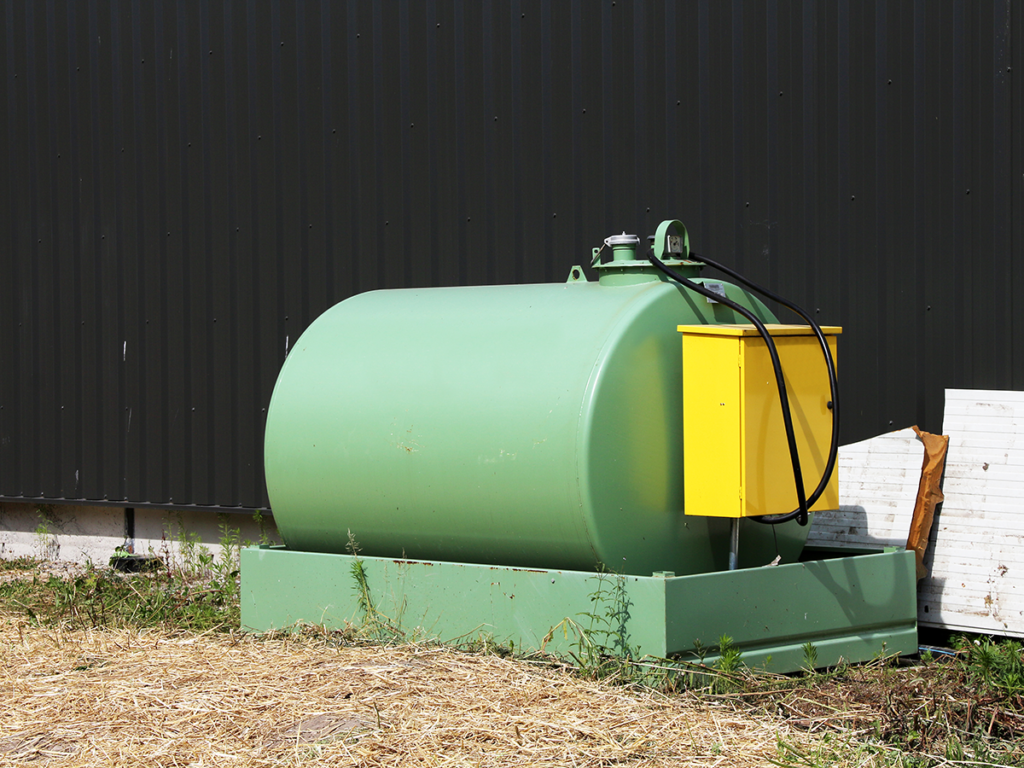In addition to complying with state and federal regulations, farm owners who have an on-site petroleum storage tank should be aware of best practices for storage to help prevent groundwater pollution.

Petroleum products are made of volatile organic compounds (VOC) which can quickly reach groundwater supplies during a leak or spill depending on local geology and soil type. If you are installing a new system whether underground or above-ground, pay special attention to these best practices:
- Location – The most important aspect of a petroleum storage tank’s location is its proximity to a water source. Locate the tank downslope and more than 100 feet from a drinking water well. Consider local geology, if other waste is nearby, the traffic pattern near the tank and proximity to existing buildings.
- Tank Design and Installation – Even a minor scratch on a metal tank caused by careless installation can increase corrosion and tank deterioration. Tanks should always be installed by a professional tank installer who is knowledgeable in secondary containment and spill/overfill protection.
- Maintenance and Monitoring – Implement a monthly schedule to measure tank inventory and catch any leaks early (or more frequent depending on usage). Have your tank inspected by a qualified professional each year. Be extra vigilant in tanks more than 20 years old where parts can be corroded or when inspections have not been regularly performed.
- Supervise Fuel Transfer – Always supervise fuel transfer to prevent spillover and catch waste. Replace defective refueling equipment.
Tanks that are no longer in use also pose a threat if not closed or decommissioned properly. If you live on a property with an old underground storage tank or are planning to decommission yours, contact the Indiana Department of Environmental Management (IDEM) for closure requirements.
Find more details about petroleum storage tank regulations and best practices from the Water Systems Council’s Petroleum Storage Practices on the Farm information sheet.
Groundwater is your drinking water – let’s protect it! If you have an environmental spill always call IDEM’s 24-Hour Emergency Spill Line toll free at (888) 233-7745 or (317) 233-7745.
